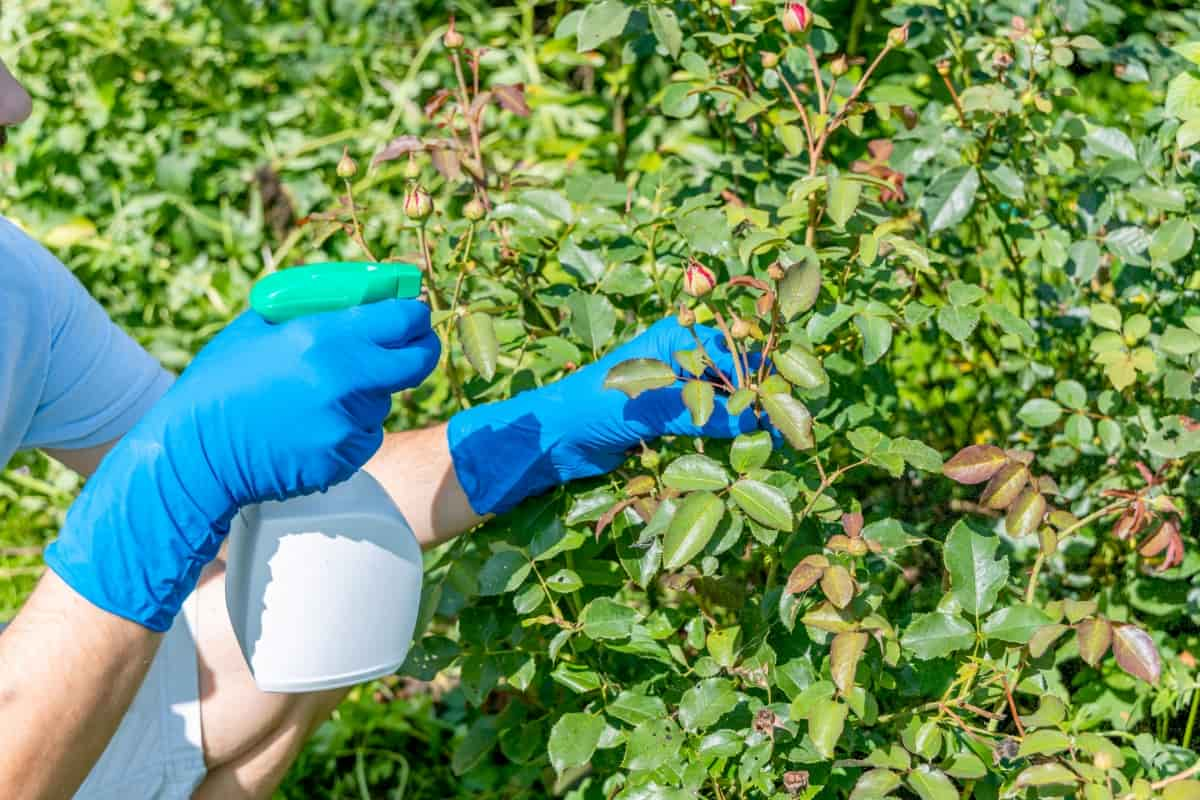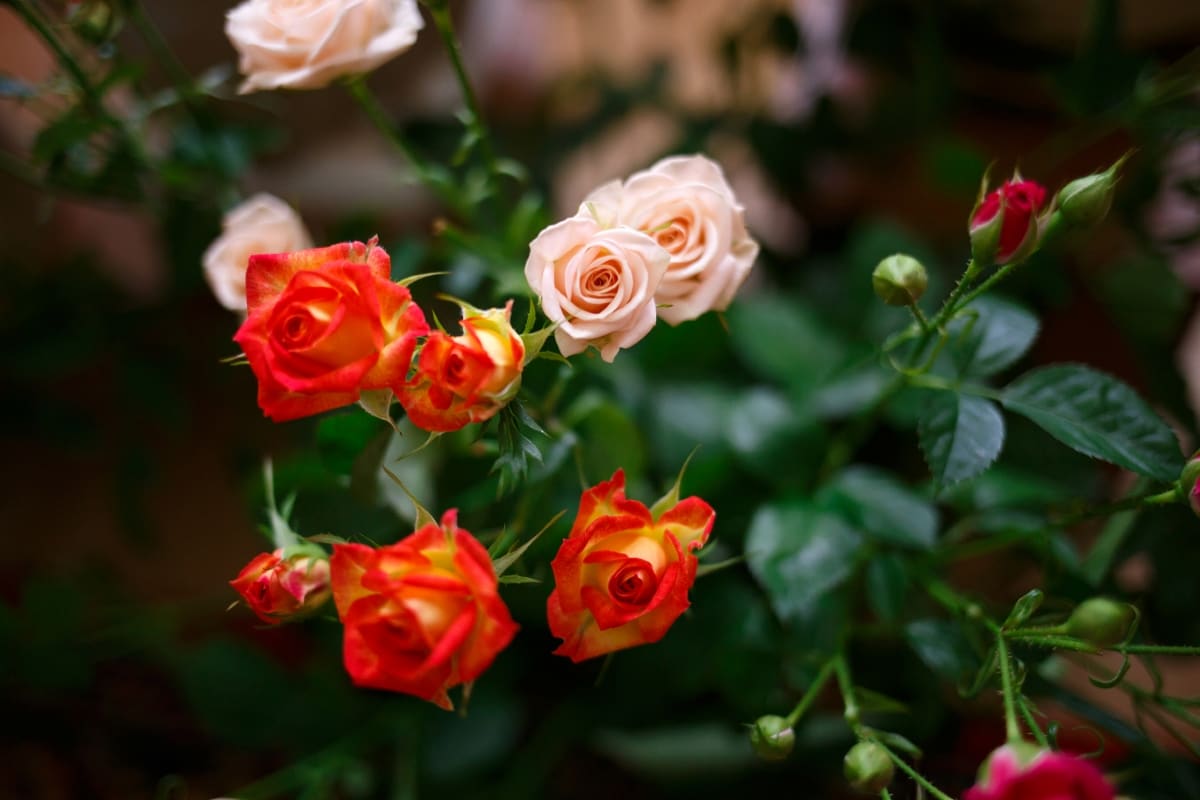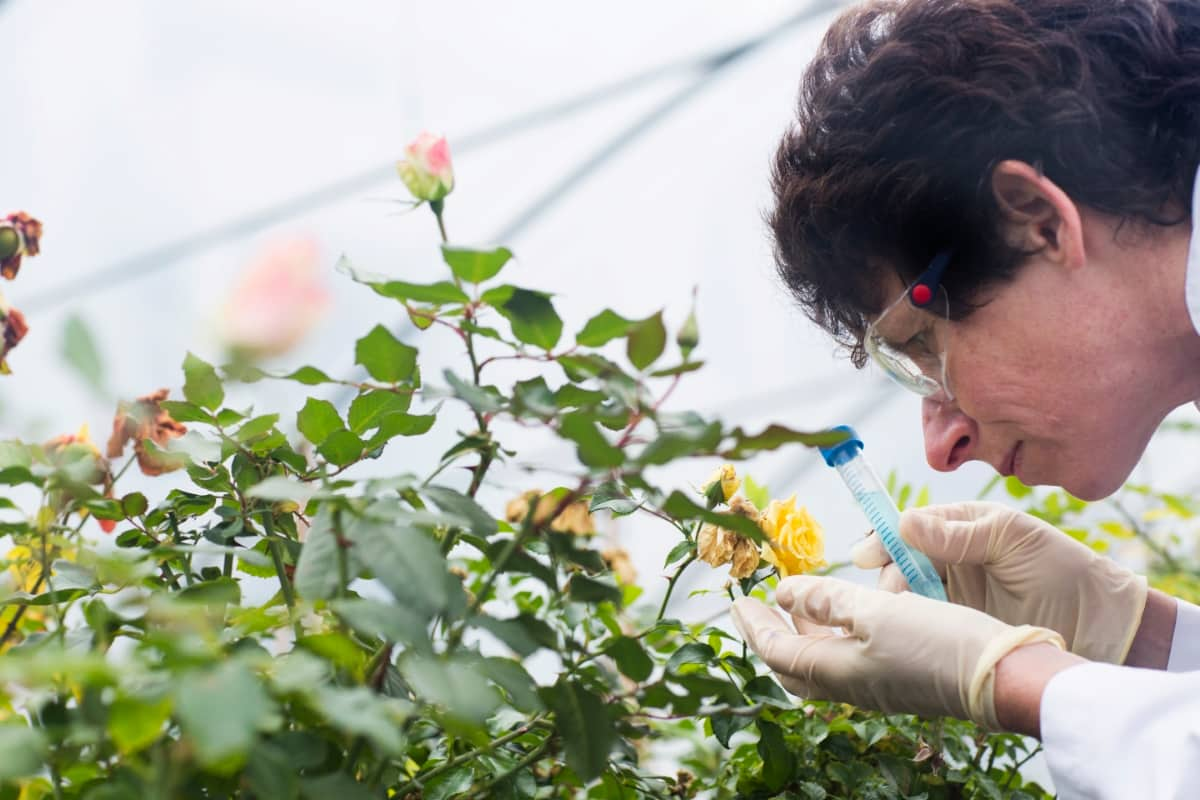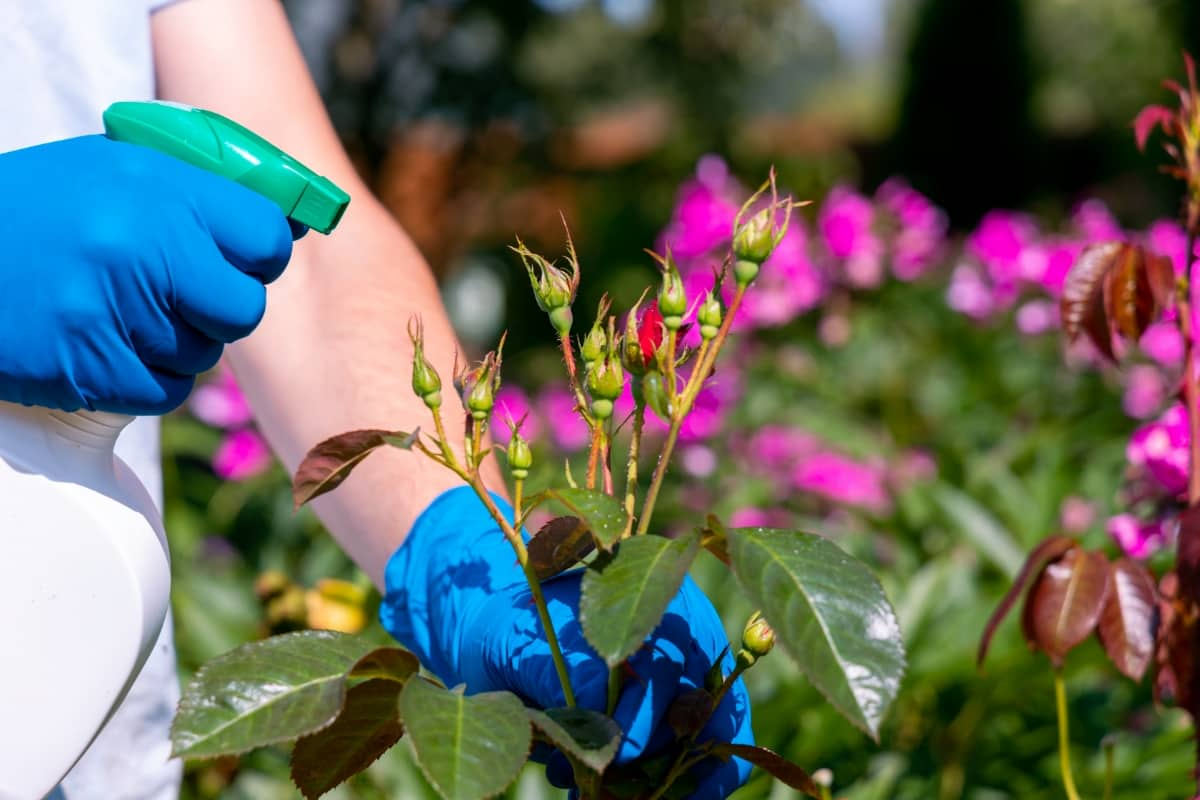The beauty and fragrance of roses make them a beloved plant, but they can be vulnerable to various pests and diseases. To maintain the health and vitality of rose plants, Neem oil extracted from the seeds of neem trees (Azadirachta indica) can be used. Known for its insecticidal, antifungal, and antibacterial properties, neem oil serves as a versatile and eco-friendly remedy for a range of issues that roses may face. This step-by-step guide will explore how to use neem oil on rose plants to prevent and address common problems, promoting robust growth and vibrant blooms.

How to Use Neem Oil on Rose Plants
The Benefits of Neem Oil for Rose Plants: A Comprehensive Guide
Neem oil, made from the neem tree seeds, is a natural powerhouse for rose plants. Its pesticidal properties combat common pests like aphids and spider mites while deterring fungal issues. The oil’s antifungal and antibacterial traits help prevent diseases, ensuring vibrant, healthy roses. Neem oil also acts as a growth stimulant, enhancing the plant’s resilience. Additionally, it’s environmentally friendly, posing minimal harm to beneficial insects. Diluted neem oil, applied regularly, serves as a sustainable and effective solution for nurturing robust, pest-resistant rose gardens.
The Importance of Proper Application Techniques for Neem Oil on Rose Plants
Effective application of neem oil is crucial for optimizing its benefits on rose plants. Begin by choosing the right concentration and ensuring the oil is well-mixed. Apply during the cooler parts of the day to prevent leaf burn. Thoroughly coat both sides of leaves, stems, and buds, covering all plant surfaces.
Repeat applications every 7-14 days, especially during the growing season. Avoid overuse, as neem oil is potent and can harm beneficial insects if misapplied. Proper technique enhances neem oil’s ability to control pests and diseases and stimulate plant growth, fostering a flourishing rose garden.
Step-By-Step Instructions for Using Neem Oil to Treat Rose Plant Diseases
- Preparation: Mix neem oil according to instructions, ensuring the right concentration.
- Timing: Apply during cooler hours to prevent leaf burn, ideally in the early morning or late afternoon.
- Coverage: Thoroughly coat both sides of leaves, stems, and surrounding soil for comprehensive protection.
- Frequency: Apply consistently, especially after rainfall or watering, to maintain a protective barrier.
- Rotation: Rotate neem oil with other treatments to prevent pest resistance.
- Consistency: Follow a regular application schedule, promoting sustained plant health.
- Monitoring: Keep a close eye on the plant’s response, adjusting frequency or concentration if needed.
- Environmental Considerations: Ensure the treatment is environmentally friendly, preserving beneficial insects and promoting a balanced ecosystem.
In case you missed it: Using Neem Oil on Cucumber Plants: A Natural Way to Control Cucumber Pests

Maximizing the Effectiveness of Neem Oil on Rose Plants: Dos and Don’ts
Dos: Start by selecting a high-quality neem oil. Dilute according to instructions for the specific application. Apply during the cooler parts of the day, ensuring thorough coverage of leaves, stems, and buds. Use a consistent schedule, typically every 7-14 days during the growing season. Monitor plant health for adjustments. Store neem oil properly in a cool, dark place.
Don’ts: Avoid applying in extreme temperatures. Don’t exceed recommended concentrations, as neem oil is potent. Refrain from overusing, as this can harm beneficial insects. Never mix neem oil with other chemicals without checking compatibility. Avoid applying during rainy or windy conditions to maximize adherence and efficacy.
Neem Oil Works as a Natural Pest Control Solution for Rose Plants
Neem oil stands as a natural ally in pest control for rose plants. Derived from the neem tree, it consists of compounds that repel and disrupt pests’ life cycles, like aphids and spider mites. Its natural pesticide properties make it a safer alternative to synthetic chemicals, preserving the health of plants and surrounding ecosystems.
Regular applications control pests and inhibit the development of fungal diseases, ensuring the longevity and vibrancy of rose gardens. Embracing neem oil as a pest control solution aligns with environmentally conscious gardening practices, fostering a balance between pest management and preserving beneficial insects.
Enhancing the Health and Beauty of Rose Plants with Neem Oil
Neem oil is a natural elixir for promoting the health and beauty of rose plants. Packed with antioxidants, it fortifies roses against pests and diseases, fostering robust growth. Regular applications stimulate root development and enhance nutrient absorption, resulting in luscious blooms. Neem oil’s ability to balance soil microorganisms contributes to overall soil health, creating an optimal environment for thriving roses. Embrace neem oil as a holistic solution to nourish, protect, and beautify your rose garden, cultivating a sustainable and vibrant floral display.
In case you missed it: Using Neem Oil on Tomato Plants: A Step-By-Step Guide to Natural Way to Control Tomato Pests

How to Safely Apply Neem Oil on Rose Plants: Tips and Precautions
Ensure safe and effective neem oil application on rose plants by following key tips. Dilute neem oil according to package instructions to avoid plant stress. Apply in the early morning or late afternoon to prevent leaf burn. Use a sprayer for comprehensive coverage, ensuring both sides of leaves, stems, and buds are coated.
Maintain a consistent application schedule, typically every 7-14 days during the growing season. Avoid overdosing to prevent harm to beneficial insects. Do not mix neem oil with incompatible chemicals. Store neem oil away from direct sunlight in a cool, dry place. Adhering to these precautions maximizes neem oil’s benefits while safeguarding the health of your rose plants and the surrounding ecosystem.
Neem Oil vs. Synthetic Pesticides: Why Choose Neem for Your Rose Plants?
Opting for neem oil over synthetic pesticides offers many benefits for rose plants. Neem oil is a natural, biodegradable alternative that effectively combats pests without harming beneficial insects. Its antifungal and antibacterial properties protect roses from diseases while promoting plant health.
Unlike synthetic pesticides, neem oil is eco-friendly, posing minimal environmental risk. It’s a sustainable choice that preserves the delicate balance of your garden ecosystem. Additionally, neem oil nurtures soil health, supporting long-term rose vitality. By choosing neem, you embrace a holistic and safe approach to rose care, ensuring both the well-being of your plants and the sustainability of your gardening practices.
Common Issues When Using Neem Oil on Rose Plants
While neem oil is beneficial for rose care, common issues can arise. Overapplication may lead to leaf burn, so adhere to recommended dilution rates. Some plants exhibit sensitivity, necessitating a patch test before widespread use. Incompatible chemical mixing can compromise efficacy or harm plants.
In case you missed it: Neem Oil for Lawn Care: How to Use as Organic Pest Control Solution for Lawn Grass

Rain shortly after application may wash away the oil, impacting effectiveness. Applying in extreme temperatures can stress the plants. Pests may require multiple treatments for complete eradication. Despite these considerations, proper usage ensures neem oil’s efficacy as an environmentally friendly solution for vibrant, healthy roses.
Conclusion
In conclusion, mastering neem oil on rose plants is a journey toward vibrant and resilient gardens. This step-by-step guide empowers gardeners to harness the natural prowess of neem oil for pest control, disease prevention, and overall plant vitality. By adhering to proper application techniques and considering precautions, one can cultivate a flourishing rose haven while embracing an eco-friendly and sustainable approach to gardening.
- Feed Your Flock for Less: Top 10 Tips to Save on Chicken Feed
- Ultimate Guide to Ossabaw Island Hog: Breeding, Raising, Diet, and Care
- Hatching Answers: The Top 10 Reasons Your Chickens Aren’t Laying Eggs
- Eggs and Economics: Breaking Down the Cost of Raising Backyard Chickens
- Defend Your Greens: Proven Methods to Keep Iguanas Out of Your Garden
- Ultimate Guide to Cinnamon Queen Chicken: A Comprehensive Guide for Beginners
- Ultimate Guide to California Tan Chicken: Breeding, Raising, Diet, Egg-Production and Care
- Ultimate Guide to Marsh Daisy Chicken: Breeding, Raising, Diet, and Care
- 10 Types of Chicken Farming Businesses You Can Start for Profits